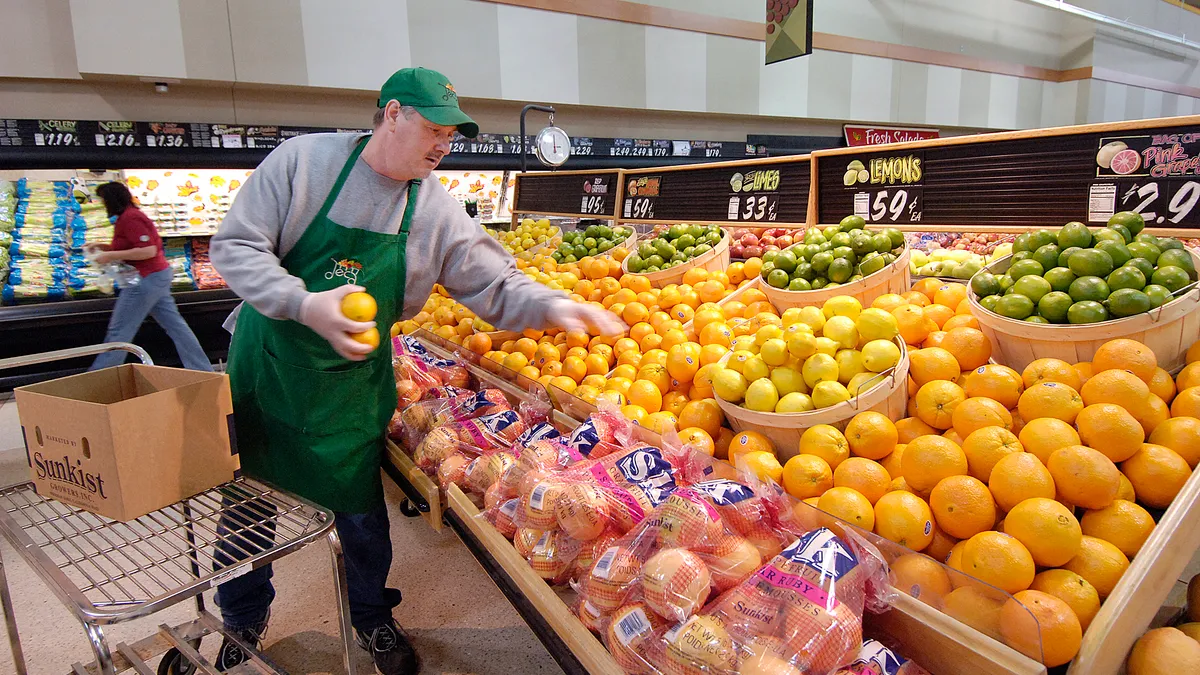Dive Brief:
- Sixty-six percent of millennials find store employees "extremely important" to their shopping experience, according to a study by ChargeItSpot, a provider of cell phone charging stations for major retailers. Conversely, baby boomers were the generation most comfortable eliminating this human interaction, with 22% finding store associates "extremely unimportant."
- The study also found that 43% of the 600 shoppers surveyed would stop shopping at place where robots replaced human workers.
- “We are seeing more technology being integrated into the in-store experience,” Douglas Baldasare, CEO and founder of ChargeItSpot, said in the report. “Amazon is already testing the cashier-less checkout process in their Amazon Go location, eliminating the need for human workers altogether. While this may seem like a perk for some, it could turn shoppers away from stores.”
Dive Insight:
ChargeItSpot's study goes against many preconceived notions about who finds human interaction important as part of the retail experience. One might assume that baby boomers would take comfort in asking a store employee for help, while millennials would be eager to embrace their robot replacements. According to this report, the opposite holds true.
At a time when grocery stores are racing to find new ways to integrate technology, it's interesting to learn that the youngest, most tech-savvy consumers want to keep store associates exactly where they are. This doesn't mean that millennials are against shelving advancements like Schnucks Markets front-of-store robot, which can scan shelves for low inventory and price errors. Rather, it reinforces the importance of keeping store employees on the floor to answer questions, assist with checkout and more.
Regardless of consumer preference, robots are still expected to become a retail asset. Amazon has set the gold standard for robotic fulfillment behind the scenes by automating tasks that are more efficiently and profitably completed by robots. Grocery chains could follow suit, as long as helpful humans are still available to shoppers.
Supermarket employees could see this study as a little bit of insurance for job security. Management should continue to improve efforts to make associates feel like valued members of their company. Many could take a note from Publix, which is regularly listed as one of Fortune’s top 100 companies for which to work. First off, it's employee owned, which gives workers a vested interest in the company. In addition, the retailer gives out hefty holiday bonuses and offers a ‘"family-like" working environment. Employees are happy, so they stick around and contribute to the positive store experience that it's known and beloved for.
This study also gives a little boost to brick-and-mortar stores in their on-going competition with e-commerce. It demonstrates that when shoppers take the time to leave their home and actually patronize a store, they are there for a reason: customer service. Grocers should also look for opportunities to leverage human interaction across store departments, whether by adding produce butchers in the fresh section or in-store nutritionists by the pharmacy.







